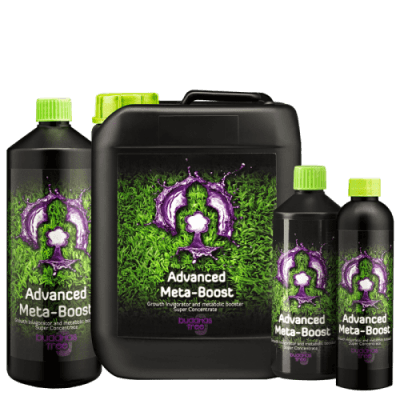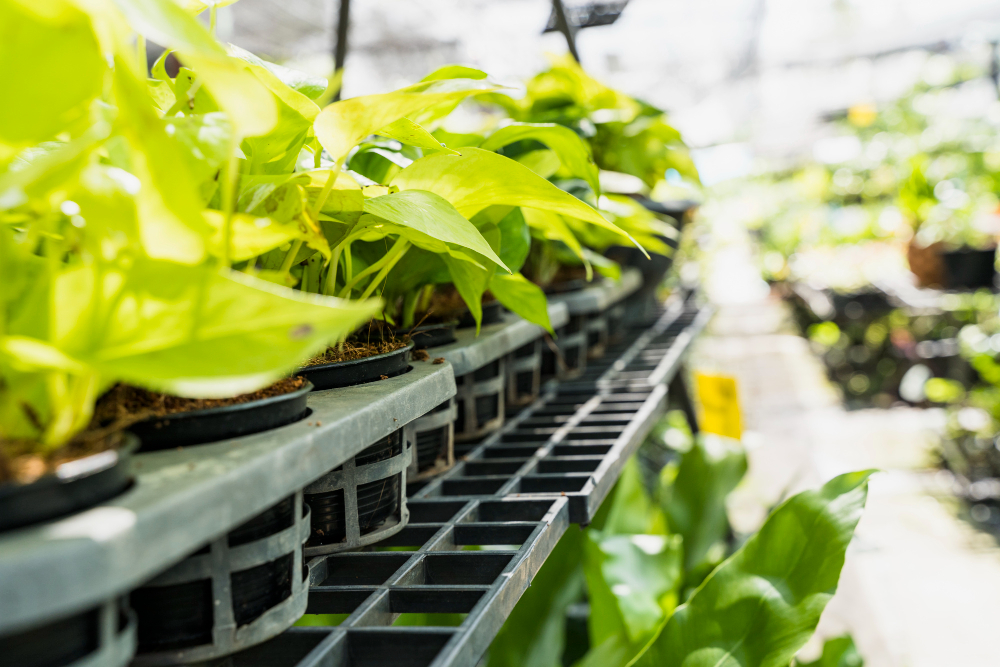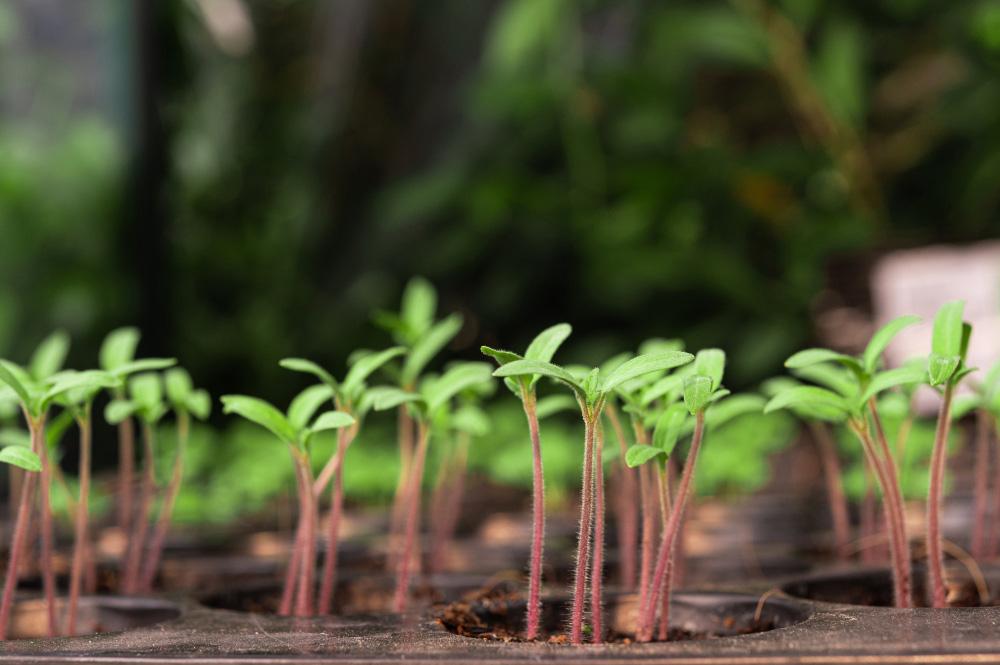Introduction
In hydroponic systems, the plants rely solely on nutrient solutions to grow. Therefore, selecting the right hydroponic nutrient supplements is crucial for the success of your hydroponic garden. It can be overwhelming with many hydroponic nutrient brands and hydroponic nutrient solutions available in the market. But worry not, we have got you covered!
One trusted brand of hydroponic nutrients is Canna. Their products are designed to provide plants with everything they need to thrive in a hydroponic system. Additionally, there are many other great hydroponic nutrient solutions available, and we will explore some of the best in this article.
Understanding Hydroponic Nutrients
Hydroponic nutrients are essential for providing plants with the necessary elements required for growth. Unlike traditional soil-based farming, hydroponics relies on nutrient-rich solutions to provide plants with the nutrients they need.
Hydroponic Nutrient Brands
There are many different hydroponic nutrient brands available on the market, each with its own unique nutrient mix. When selecting a hydroponic nutrient brand, it is important to consider factors like plant type, growth stage, and other environmental factors like pH levels.
Some of the most popular nutrient brands include Canna, Vitalink, Plant Magic, Eco Thrive, Plant Technology, OCD, Buddhas Tree to name a few. Each brand offers its own blend of macro and micronutrients, tailored to different types of plants.
Hydroponic Nutrient Guide
When selecting a hydroponic nutrient mix, it is important to consider the specific needs of your plants. Most nutrient mixes contain a blend of macro and micronutrients, including nitrogen, phosphorus, potassium, calcium, and magnesium.
Nitrogen is essential for promoting plant growth and leaf development, while phosphorus is critical for root development and flower production. Potassium is important for overall plant health and helps regulate water balance.
Organic Hydroponic Nutrients
Organic hydroponic nutrients are becoming increasingly popular among growers due to their environmentally friendly nature. Unlike synthetic nutrients, organic nutrients are made from natural sources like fish waste, bone meal, and kelp meal.
Organic hydroponic nutrients can provide a range of benefits for plants, including increased nutrient uptake, improved resistance to pests and diseases, and better flavour and aroma.
Hydroponic Nutrient Mix
The ideal hydroponic nutrient mix will depend on the specific needs of your plants. Most nutrient mixes come in either liquid or powder form and can be mixed with water to create a nutrient-rich solution for your plants.
It is important to follow the recommended dilution rates for your chosen nutrient mix, as overfeeding can lead to nutrient burn and other complications. Additionally, it is crucial to maintain the proper pH level of your nutrient solution, as this can affect nutrient uptake and overall plant health.
Hydroponic Nutrient Deficiency
One of the most common issues faced by hydroponic growers is nutrient deficiency. This can occur when the plant is not receiving enough of a specific nutrient and can lead to stunted growth, yellowing leaves, and other problems.
To prevent nutrient deficiency, it is important to monitor the nutrient levels in your hydroponic system regularly. This can be done using a variety of tools, including pH meters, EC meters, and nutrient testing kits.
In the next section, we will explore the role of hydroponic nutrients in plant growth and how to choose the best nutrient solution for your hydroponic system.
The Role of Nutrients in Hydroponic Systems
Hydroponic systems rely on nutrient solutions to provide plants with the necessary elements for growth. The nutrient solution is composed of various essential nutrients such as nitrogen (N), phosphorus (P), potassium (K), calcium (Ca), magnesium (Mg), and others. These nutrients are usually derived from chemical fertilizers or organic sources.
The goal of the nutrient solution is to provide plants with the optimal ratio of nutrients to ensure healthy growth and high yields. This is accomplished by carefully selecting and mixing the necessary nutrients, taking into account the specific requirements of each plant species and growth stage.
| Nutrient | Role |
|---|---|
| Nitrogen (N) | Required for the production of chlorophyll and amino acids, essential for plant growth and development |
| Phosphorus (P) | Important for root development, energy transfer, and cell division |
| Potassium (K) | Essential for photosynthesis, water regulation, and disease resistance |
| Calcium (Ca) | Important for cell wall development and structure, as well as enzyme activation |
| Magnesium (Mg) | Necessary for the production of chlorophyll and enzymes, and helps regulate nutrient uptake |
While it’s essential to ensure that plants receive the right amount of nutrients, it’s equally important to avoid overfeeding them. Overfeeding can lead to nutrient toxicity and damage, while underfeeding can cause nutrient deficiencies and stunted growth. Thus, maintaining the correct nutrient balance is crucial.
The proper nutrient solution ratio may vary depending on the type of plant, its growth stage, and the specific hydroponic system being used. It’s essential to monitor the nutrient levels regularly to maintain the optimal nutrient balance and avoid nutrient deficiencies or toxicities.
Types of Hydroponic Nutrients
Hydroponic nutrients come in various types and are formulated based on the unique needs of plants grown in hydroponic systems. Here are some of the most commonly used types of hydroponic nutrients:
| Type | Description | Pros | Cons |
|---|---|---|---|
| One-part | A single bottle nutrient solution that contains all essential nutrients. | Convenient and easy to use, requires less storage space. | May not offer as customisable nutrient ratios as multi-part options. |
| Two-part | A two-bottle nutrient solution containing separate bottles of either liquid or powder to be mixed together. | Allows for more customisable nutrient ratios and easy adjustments to nutrient levels. | Requires more storage space and can be more expensive than one-part options. |
| Powdered | A dry nutrient mix that is dissolved in water before use. | Cost-effective, lightweight, and easy to store and transport. | May require more time and effort to mix and dissolve. |
| Organic | Nutrient solutions derived from natural sources, such as fish, kelp, or bone meal. | Can improve plant flavour and aroma, and promote sustainable growing practices. | May be more expensive and less effective than synthetic alternatives. |
When selecting a hydroponic nutrient mix, it’s essential to consider the specific needs of your plants and the type of hydroponic system you’re using. It’s also important to choose a reputable hydroponic nutrient brand that provides clear instructions on how to mix and use their products.
Hydroponic Nutrient Brands
There are various hydroponic nutrient brands available on the market, each with their unique strengths and weaknesses. Some popular hydroponic nutrient brands include:
- Canna:: A renowned horticulture nutrient brand known for its high-quality plant fertilizers and additives, designed to enhance plant growth and yield.
- Vitalink : A trusted name in the horticulture industry, Vitalink offers a range of nutrient solutions and supplements to promote healthy plant development and maximize crop productivity.
- Plant Magic: Providing effective plant nutrients and stimulants, Plant Magic is dedicated to improving soil health and supporting optimal plant growth throughout the horticulture process.
- Eco Thrive: A sustainable horticulture nutrient brand focused on eco-friendly solutions, Eco Thrive offers products that enrich soil and foster healthy plant growth without harmful chemicals.
- Plant Technology: With innovative formulas and cutting-edge techniques, Plant Technology delivers advanced horticulture nutrients and additives to achieve exceptional crop results.
- OCD (Organic Crop Development): Specializing in organic horticulture, OCD offers a range of organic nutrient products that prioritize environmental sustainability and the health of the plants.
- Buddhas Tree: Buddhas Tree provides horticulture nutrients and enhancers designed to optimize plant performance and overall health, inspired by nature’s wisdom.
When selecting a hydroponic nutrient brand, consider factors such as its reputation, customer reviews, and availability in your region. It’s also important to check the nutrient ratios and ingredients of each product to ensure they meet your plants’ specific needs.
How to Mix Hydroponic Nutrients
Mixing hydroponic nutrients can be a daunting task, but it doesn’t have to be. With the right tools and knowledge, you can create the perfect nutrient solution for your plants. Here’s a step-by-step guide on how to mix hydroponic nutrients:
- Determine your nutrient requirements: Different plants have different nutrient requirements. Before mixing your hydroponic nutrients, research the nutrient requirements of your specific crop. Make sure you understand the macronutrient and micronutrient requirements of your plants.
- Purchase your nutrients: Once you know your nutrient requirements, it’s time to purchase your nutrients. You can buy pre-mixed nutrient solutions or individual nutrient salts.
- Gather your equipment: You’ll need a few pieces of equipment to mix your nutrients, including a large container, a measuring cup, a pH meter, and a mixing tool.
- Fill your container with water: Fill your container with the amount of water needed for your hydroponic system.
- Add your nutrients: Add your nutrients to the water, making sure to measure them accurately. Be careful not to over or underdose your plants.
- Mix your nutrients: Mix your nutrients thoroughly using your mixing tool. Be sure to mix until all salts are completely dissolved.
- Check your pH: Check the pH of your nutrient solution using your pH meter. Adjust the pH as needed to ensure it falls within the optimal range for your specific plants.
- Feed your plants: Now that your nutrient solution is mixed, it’s time to feed your plants. Follow the recommended feeding schedule for your specific crop, adjusting nutrient solution strength as needed.
Remember, the key to success with hydroponics is providing your plants with the right nutrients at the right time. By following these steps, you can create the ideal nutrient mix for your hydroponic system.
Ideal Hydroponic Nutrient Schedule
When it comes to hydroponic plant growth, providing the right nutrient balance at the right time is crucial. To achieve optimal growth and yield, it’s important to develop a nutrient schedule that meets the unique needs of your plants at each stage of growth.
Important note: Nutrient schedules can vary widely depending on the type of plants, the specific hydroponic system, and environmental factors such as temperature, humidity, and light. These are general guidelines to help you get started.
Seedling Stage: During the first few weeks after planting, seedlings don’t require as many nutrients as mature plants. Start with a low concentration of nutrients and gradually increase as the plants grow.
| Weeks | EC level (mS/cm) | pH |
|---|---|---|
| 1-2 | 0.4-0.6 | 5.5-6.0 |
| 3-4 | 0.8-1.0 | 5.8-6.3 |
Growth Stage: Once the plants have established roots and are actively growing, increase the nutrient concentration to support growth. Maintain a consistent nutrient solution and adjust pH as needed.
| Weeks | EC level (mS/cm) | pH |
|---|---|---|
| 1-2 | 1.2-1.5 | 5.8-6.3 |
| 3-4 | 1.5-1.8 | 5.8-6.3 |
| 5-6 | 1.8-2.0 | 5.8-6.3 |
Flowering/Bearing Stage: During the flowering/bearing stage, plants require high levels of phosphorus and potassium to produce flowers and fruits. Adjust your nutrient solution to reflect these needs.
| Weeks | EC level (mS/cm) | pH |
|---|---|---|
| 1-2 | 1.8-2.0 | 5.8-6.3 |
| 3-4 | 2.0-2.4 | 5.8-6.3 |
| 5-6 | 2.4-2.8 | 5.8-6.3 |
Remember to keep an eye on your plants and adjust your nutrient solution as needed based on their individual needs. By following an ideal hydroponic nutrient schedule, you can ensure your plants receive the nutrients they need for healthy growth and maximum yield.
Hydroponic Nutrient Application
Proper application of hydroponic nutrient solutions is essential for optimal plant growth and yield. Here are some tips to ensure your plants are getting the nutrients they need:
- Check the pH level of your nutrient solution. The ideal pH range for hydroponic nutrient solutions is between 5.5 and 6.5. Adjust the pH as necessary using pH up or pH down solutions.
- Monitor the nutrient concentration of your solution using a TDS meter. The recommended nutrient concentration varies depending on the stage of plant growth. Follow the instructions provided by your hydroponic nutrient brand for the ideal nutrient concentration for your plants.
- Apply the nutrient solution to your plants according to the instructions provided by your hydroponic nutrient brand. Some brands recommend adding the nutrient solution directly to the reservoir, while others recommend applying the solution directly to the roots using a hydroponic drip system.
- Ensure proper nutrient absorption by your plants by providing adequate oxygenation to the root zone. Use an air stone or air pump to aerate your nutrient solution and improve root health.
- Monitor your plants closely for signs of nutrient burn or deficiency. Adjust your nutrient solution as necessary to address any issues.
By following these tips, you can improve the health and growth of your hydroponic plants with proper nutrient application.
The Importance of Monitoring Hydroponic Nutrients
Monitoring hydroponic nutrients is essential for healthy plant growth and to prevent nutrient deficiencies or toxicities. It’s essential to monitor the nutrient solution’s pH and EC levels to ensure your plants are getting the right amount of nutrients.
One of the most common signs of nutrient deficiency is yellowing leaves, stunted growth, and poor plant health. Plants can also become overloaded with nutrients, resulting in toxicity, which can cause leaf burn, root damage, and even plant death.
Regularly monitoring and adjusting your nutrient solution can help prevent these issues. Checking the pH levels at least once a week and adjusting them if necessary will help ensure your plants can uptake nutrients efficiently. Similarly, monitoring the EC levels will help prevent toxic buildups of nutrients in the solution.
How to spot nutrient deficiencies
The first step in monitoring your hydroponic nutrients is to be observant of your plants. Look out for any signs of nutrient deficiencies, such as yellowing or browning of the leaves, stunted or distorted growth, or weak stems. Additionally, checking the pH and EC levels of the nutrient solution regularly will help detect any issues before they become problematic.
How to adjust nutrient solutions
If you notice any signs of nutrient deficiencies or toxicities, you can adjust your nutrient solution accordingly. If the pH levels are too high or low, you can use pH adjusters to bring them back to the optimal range. Similarly, if the EC levels are too high, you can dilute the nutrient solution with water to lower the nutrient concentration.
Adjusting your nutrient solution will help prevent nutrient deficiencies or toxicities and ensure your plants receive the right amount of nutrients at all stages of growth.
Choosing Organic Hydroponic Nutrients
Organic hydroponic nutrients are becoming increasingly popular among growers due to their lower environmental impact and potential benefits to plant growth. They are also considered a safer option for consumption, as they do not contain any harmful chemicals or residues.
But what exactly are organic hydroponic nutrients?
Organic nutrients are derived from natural sources, such as plant and animal waste, and are minimally processed to retain their essential nutrients. They provide a range of macronutrients and micronutrients, including nitrogen, phosphorus, potassium, calcium, and magnesium, which are crucial for plant growth and development.
While synthetic hydroponic nutrients can also provide essential nutrients for plants, they often contain chemicals that can accumulate in the environment and potentially harm human health. Organic nutrients, on the other hand, are less likely to cause nutrient toxicity or environmental damage.
So, why should you choose organic hydroponic nutrients?
Firstly, organic hydroponic nutrients can improve the taste, texture, and nutritional value of your crops. They contain a range of micronutrients that are often absent in synthetic nutrient solutions, leading to healthier and more nutrient-dense produce.
Secondly, organic hydroponic nutrients can be more sustainable and cost-effective in the long run. While they may be slightly more expensive initially, they are often more concentrated and require less frequent application, resulting in lower overall costs.
Lastly, organic hydroponic nutrients can be a safer option for both the environment and human health. They do not contain synthetic chemicals that can accumulate in water sources or harm beneficial organisms in the soil.
When selecting organic hydroponic nutrients, it is important to choose a reputable brand that uses high-quality ingredients and has undergone rigorous testing to ensure their products are effective and safe to use. Acorn Horticulture is one such brand that offers a range of organic hydroponic nutrients specifically designed for hydroponic systems.
Overall, organic hydroponic nutrients can provide many benefits to both growers and the environment. By choosing organic options, you can ensure your crops are healthy and nutrient-dense, while also reducing your environmental impact and contributing to a more sustainable future.
Best Hydroponic Nutrient Brands
When it comes to selecting the best hydroponic nutrient brands, there are many options available on the market. Each brand offers different nutrient solutions with varying benefits. Here are some of the top hydroponic nutrient brands you may want to consider:
| Brand | Key Features | Strengths |
|---|---|---|
| Canna | High-quality fertilizers and additives | Renowned reputation, promotes plant growth |
| Vitalink | Nutrient solutions and supplements | Trusted name, supports healthy plant growth |
| Plant Magic | Plant nutrients and stimulants | Improves soil health, enhances plant growth |
| Eco Thrive | Sustainable and eco-friendly solutions | Environmentally friendly, enriches soil |
| Plant Technology | Advanced nutrient formulas and techniques | Innovative, achieves exceptional crop results |
| OCD | Organic horticulture nutrients | Focus on sustainability, natural plant health |
| Buddhas Trees | Performance-optimizing nutrients | Inspired by nature, enhances overall plant health |
Ultimately, the best hydroponic nutrient brand for you will depend on your specific needs and preferences. When selecting a brand, consider factors such as plant variety, growth stage, and nutrient requirements. It may be helpful to consult a hydroponic nutrient guide or seek advice from experienced hydroponic growers to select the ideal hydroponic nutrient solution for your crops.
Hydroponic Nutrient Solutions for Different Plants
When it comes to hydroponic nutrient solutions, it’s important to select the right mix from the brands we have mentioned for the type of plants you’re growing. Different crops have varying nutrient requirements, so it’s essential to tailor your nutrient solution accordingly to ensure optimal growth and yield. Here are some examples of the best hydroponic nutrient solutions from the mentioned brands for different plants:
Leafy Greens
For leafy greens such as lettuce and spinach that have high nitrogen requirements, you can use Canna Aqua Vega or Vitalink Hydro Max Grow. These nutrient solutions are specifically designed to promote lush and vigorous growth in leafy greens.
Fruits
Fruit-bearing plants like tomatoes, strawberries, and peppers require higher levels of phosphorus and potassium for better fruit development. For them, you can opt for Plant Magic Old Timer Organic Grow or Eco Thrive Charge (Grow) to support healthy fruiting.
Root Vegetables
Root vegetables like carrots and beets benefit from a balanced nutrient solution. You can use Plant Technology Hydro Grow or Buddhas Tree Hydro Grow, which provide the necessary nutrients in a well-balanced ratio to support root development.
FAQ about Hydroponic Nutrients
Hydroponics is a popular and efficient method of growing plants, but it can be confusing for beginners. Here are some common questions about hydroponic nutrients:
How often should I feed my hydroponic plants?
The frequency of feeding your plants depends on the stage of growth and the type of hydroponic system you have. Generally, plants should be fed between 1-3 times a day, but make sure to check the recommended feeding schedule for your specific nutrient solution.
What is the best pH level for hydroponic nutrient solutions?
The ideal pH level for hydroponic nutrient solutions ranges from 5.5 to 6.5, depending on the type of plants you are growing. It’s important to regularly monitor the pH level to avoid nutrient deficiencies or toxicities.
What is the ideal hydroponic nutrient ratio for different crops?
The ideal nutrient ratio varies depending on the type of plants you are growing. For example, leafy greens prefer a higher nitrogen-to-potassium ratio, while fruiting plants require more potassium and phosphorus. Check the nutrient requirements for your specific plants and adjust your nutrient solution accordingly.








